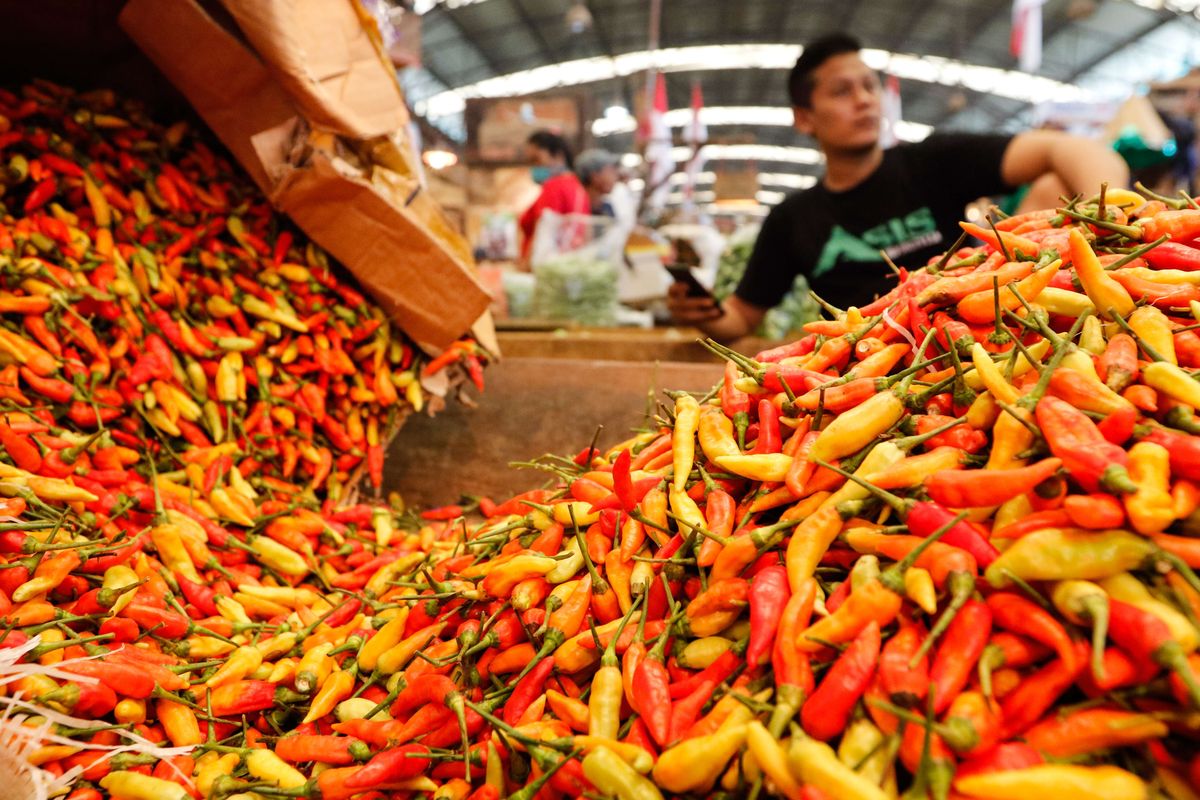In recent weeks, Jakarta has witnessed a significant surge in chili prices, with red bird's eye chili reaching up to Rp110,000 per kilogram in retail markets. This sharp increase is primarily attributed to adverse weather conditions, including heavy rainfall and strong winds in key agricultural regions, which have disrupted production and led to a 56 percent reduction in supply to the capital.
Suharini Eliawati, Head of the DKI Jakarta Food Security, Marine, and Agriculture Agency (KPKP), highlighted the severity of the situation, noting that the Provincial Government of DKI Jakarta is proactively implementing several strategic measures to stabilize prices and ensure adequate supply for residents.
Monitoring and Market Operations
The provincial government, in collaboration with relevant agencies, state-owned enterprises (BUMD), and the Food Task Force, is conducting regular monitoring of chili availability and prices across markets. This initiative aims to anticipate potential supply crises and prevent further price escalations.
Additionally, Perumda Pasar Jaya, a regional-owned enterprise, is spearheading market operations, including in the Thousand Islands region, to distribute chili at more affordable prices. These efforts are designed to alleviate the financial burden on consumers and curb inflationary pressures stemming from volatile food prices.
Affordable Food Programs
To further mitigate the impact of soaring chili prices, the government has launched the "Pangan Murah Keliling" (Mobile Affordable Food) program. This initiative involves selling chili and other essential commodities at subsidized rates in various locations, such as government offices, public housing complexes, and other strategic areas. By bringing affordable food directly to the community, the program seeks to enhance accessibility and support household food security.
Urban Farming Initiatives
Recognizing the potential of urban agriculture, the provincial government is leveraging BUMD facilities to promote urban farming, with a particular focus on chili cultivation. This approach not only aims to supplement the city's chili supply but also encourages community participation in sustainable food production. Urban farming serves as a resilient strategy to reduce dependency on external supplies, especially during periods of climatic adversity.
Coordination with Central Government and Producers
The DKI Jakarta administration is maintaining close coordination with the central government and chili producers in various regions to address supply challenges caused by extreme weather. This collaborative effort is essential to synchronize policies, optimize resource allocation, and implement effective interventions that can stabilize the market.
Outlook
The Indonesian Chili Agribusiness Association has indicated that without serious intervention, high chili prices may persist until February. However, with the comprehensive measures being undertaken by the DKI Jakarta Provincial Government, there is optimism that price volatility can be mitigated, ensuring that residents have continuous access to this staple ingredient.
In conclusion, the DKI Jakarta Provincial Government remains committed to safeguarding food availability and minimizing the impact of price surges on its citizens. Through vigilant monitoring, market operations, affordable food programs, urban farming, and intergovernmental coordination, the administration strives to stabilize chili prices and uphold the welfare of Jakarta's residents.
Read More






 Wednesday, 05-02-25
Wednesday, 05-02-25







